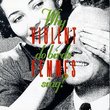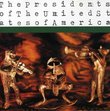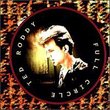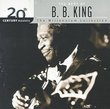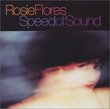| All Artists: Son House Title: The Complete Library of Congress Sessions, 1941-1942 Members Wishing: 6 Total Copies: 0 Label: Travelin' Man Release Date: 1/16/1996 Album Type: Original recording remastered Genres: Country, Blues, Pop Styles: Classic Country, Delta Blues, Traditional Blues, Acoustic Blues, Slide Guitar Number of Discs: 1 SwapaCD Credits: 1 UPCs: 008637800222, 086378002228 |
Search - Son House :: The Complete Library of Congress Sessions, 1941-1942
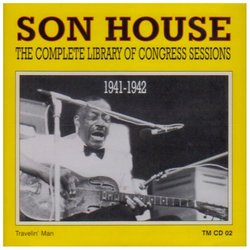 | Son House The Complete Library of Congress Sessions, 1941-1942 Genres: Country, Blues, Pop
This classic re-release of an item deleted in 1997 features 19 blues recordings from Mississippi Delta bluesman Son House recorded in 1941-42. He's on guitar & vocals, joined by Willie Brown, Fiddlin' Joe Martin & ... more » |
Larger Image |
CD DetailsSynopsis
Product Description This classic re-release of an item deleted in 1997 features 19 blues recordings from Mississippi Delta bluesman Son House recorded in 1941-42. He's on guitar & vocals, joined by Willie Brown, Fiddlin' Joe Martin & Leory Williams. A portion of this was recorded at Klack's Store, Lake Cormorant, Mississippi. You'll hear occasional railway noises in the background, as the store, which had the electricity necessary for the recording, was close to a branch-line between the lake & Robinsonville, which is where the remaining titles were recorded. Similarly Requested CDs
|
CD ReviewsThe Real Blues--Raw and Dirty Caesar | college | 05/02/2002 (5 out of 5 stars) "This collection is essential to any blues collection...you cannot truly appreciate the blues until you've heard these recordings.Son House is my favorite blues performer. No one--not even his proteges Robert Johnson or Muddy Waters--could match him when it came to the raw emotion. Sure, Robert inspired later blues-rock giants like the Rolling Stones, Eric Clapton, Led Zeppelin, Aerosmith, Stevie Ray Vaughn (to name a few...) and Muddy revolutionized the blues by 'inventing' electricity. But this collection, when coupled with the album "The Complete Recorded Works of Son House & the Great Delta Blues Singers" (ASIN: B000000J26--recorded in 1930; another essential disc), offers the listener a true glimpse into history.The first few tracks include House singing and playing guitar with his band: Willie Brown (who has since attained legendary status as his name is mentioned in Robert Johnson's lyrics; he was also was the central character in the 1986 movie "Crossroads") on harmonica, and Fiddlin' Joe Martin on mandolin. These songs are amazing. The only word I can use to describe House's slide guitar technique is FEROCIOUS. His mixture of slams and slaps, when combined with the shouts, moans, and grunts of his vocals, is nothing short of frightening. "Walking Blues"--which, of course, was a hit for both Robert Johnson and Muddy Waters but was written by House--is one particular standout. It is nearly seven minutes long (House is famous for his "epic" performances...in concert, his songs were known to exceed twenty minutes), a relentless barrage of blues. "Levee Camp Moan" is another strong point. The rhythms and shouts are incomparable.Perhaps the best analogy is "a frontal assault on the soul".The remaining songs are House's solo efforts, although the striking force has not deminished at all. In fact, they may be even more powerful--it's hard to believe that only ONE guy is singing...!When House was rediscovered during the '60s blues revival, he recorded his first and only studio album in 1965 ("Father of the Delta Blues"--ASIN: B000002877) for the Columbia label. Most who have heard of Son House know him based on these recordings alone. There is no arguement that this is a magnificent album--the emotional quality has only increased with is age. But while the sound quality is definitely better than these early field recordings (mono recordings into a single microphone in the stockyard of a train depot--you can even hear railway sounds in the background!!), House's old age hindered the ferocity of his slide guitar playing, forcing his tempo to slow down. If you want to hear the true capabilities of the man who I think is the greatest bluesman who ever lived, you must listen to these Library of Congress recordings (and then check out "...and the Great Delta Blues Singers")." Son House -- Library of Congress sessions William Quinn | Wayland, MA, USA | 04/11/2000 (5 out of 5 stars) "Son House has, arguably, the best blues voice, ever. (His rivals are his pupil, Robert Johnson, and BB King). This is his best album, ever. Great voice, great words, great guitar, and (on one cut) a train in the background. Recorded sound quality is adequate -- better than most for the period. This is one of the five or ten indispensible blues recordings of the twentieth century--Changed how I thought about music.- Blues ain't nothin'but a lowsown shakin' chill, - If you ain't had them, I hope you never will." Son House, King of the Delta rubberjohnson420 | San Marcos, TEXAS , Fetus420 | 09/13/2002 (5 out of 5 stars) "Son House is the most important and influential Delta Bluesman to ever live he was a major influence to Muddy Waters & Robert Johnson and every one else including me. Buy this C.D. it is very essential stuff this is hardcore Delta Blues there are some trks with Son House in a band setting with Willie Brown and others (perfect example of what a DeltaBlues jam session probally sounded like). These are field recordings and I mean they were actually recorded outside on trk.4 "Shetland Pony Blues" you actually hear a steam locomotive (train) go buy in the background. If your a aspiring blues guitar player get this if your a fan of the Blues your C.D. collection is seriously lacking if this is not part of it. also get "Masters of the Delta Blues, The Friends of Charlie Patton" all of Son Houses earliest recorings are on there (1930) with some other Delta Blues Legends"
|

 Track Listings (19) - Disc #1
Track Listings (19) - Disc #1